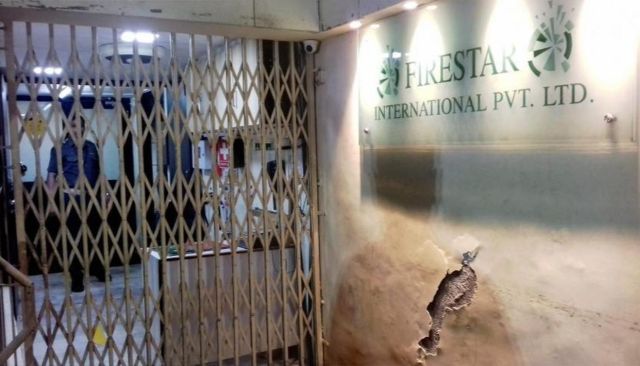
by admin | May 25, 2021 | Banking, News, Politics
 By Arul Louis,
By Arul Louis,
New York : The Punjab National Bank (PNB) is not shown as a creditor in the bankruptcy documents filed in a court here by three companies affiliated with Nirav Modi, who has been accused in a $2 billion-scam involving the nationalised financial institution.
But the document acknowledges that the filing of criminal complaints by PNB regarding allegations of “unauthorised loans” to Nirav Modi and affiliated foreign companies were the “events leading” to the filing of the bankruptcy petition.
The only banks mentioned as creditors are HSBC and Israel Discount Bank (IDB), which have outstanding loans totaling $20 million to two of the companies. The IDB’s revolving credit facility is guaranteed by Modi personally, as well as by two other companies, the document said.
However, tying up the three companies in bankruptcy proceedings would place hurdles for PNB to go after the Nirav Modi’s assets in these companies.
“In most instances, the filing of the bankruptcy case automatically stays certain collection and other actions against the debtor and the debtor’s property,” warns a note from the authorities that is attached to the bankruptcy documents. “If you attempt to collect a debt or take other action in violation of the Bankruptcy Code, you may be penalised.”
The three companies, — Firestar Diamond, Inc. (FDI); Fantasy, Inc. (FI), and A Jaffe Inc. (AJI) — filed for bankruptcy protection in the United States Bankruptcy Court for Southern New York on Monday.
The bankruptcy petition documents, obtained by IANS from the court system, show a maze of inter-connected ownerships that finally lead the three companies through several subsidiaries to Nirav Modi via Hong Kong.
Mihir Bansali, who is shown as the president and sole director of the three companies seeking voluntary bankruptcy, signed the main document for the bankruptcy petition.
On Thursday, the Nirav Modi jewelry showroom on New York’s Madison Avenue in the middle of high fashion outlets was closed, with the main entrance locked and shades pulled over the windows.
It was not possible to ascertain which company owned the showroom or why it was shut.
The three companies have petitioned under the Chapter 11 of the United States Bankruptcy Code, which permits them to operate while they reorganise their operations.
Their filing claimed that the reason for seeking bankruptcy protection was to “preserve the going concern value of their businesses and effectuate a sale or other transaction” for their brands to continue. This implies that they were not under direct financial distress.
They admitted that vendors were reluctant to continue doing business with them and some customers have begun to exploring other suppliers following the “negative publicity” that has impaired their operations and “created a great deal of uncertainty and confusion in the market.”
The government actions in India disrupted their supply chain, the filing added, was a reason for the bankruptcy filing.
They said they are trying to “reassure their customers and vendors that they were committed to carrying on their business and that swift action was being taken to mitigate the damage caused by the actions in India”.
According to Bansali’s document, FDI is owned by another US company, Firestar Group, Inc. (FGI), which is a wholly owned subsidiary of a US company, Synergies Corporation, which is a subsidiary of Honk Kong-based Firestar Holdings Limited (FHL) that is ultimately owned by Firestar International Limited (FIL), an Indian corporation whose majority shareholder is Nirav Modi.
FI is a subsidiary of FDI and 95 per cent of AJI is owned by Synergies.
Bansali is also the president and sole director of FGI and Synergies. Ajay Gandhi is shown as the secretary and chief financial officer for the three debtors, as well as FGI and Synergies.
As of Wednesday, an IANS search of court databases did not find any filings for FGI or Synergies.
The balance sheet as of last week filed in the court showed that Nirav Modi Inc owed $11.016 million to AJI and $1.767 million to FDI.
Synergies is owed $10.812 million by AJI and $7.941 million by FDI, while FHL is owed $4 million by AJI and $4.05 million by FDI, according to the balance sheet.
The filings said that FDI and FI have about $90 million of annual sales and their clients include Zales, Kay’s, Jared’s, COSTCO, Sam’s Club, Macy’s, JC Penney and US military bases.
AJI, it said, specialises in bridal jewelry and it had double digit sales growth for the last three years and were projected to reach $23 million in fiscal 2018, the document said.
Bansali asserted that they have seen “strong” early interest in purchasing some or all of their business operations.
(Arul Louis can be reached at arul.l@ians.in)
—IANS
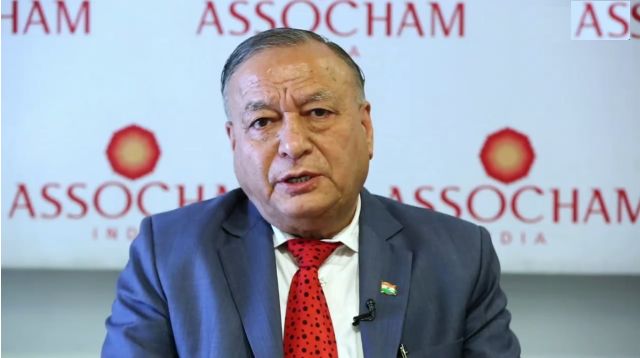
by admin | May 25, 2021 | Corporate, Corporate Buzz

Assocham Secretary General DS Rawat
New Delhi : The alleged Rs 11,300 crore fraud on state-run Punjab National Bank (PNB) committed by accused diamantaire Nirav Modi should not halt the entire system of corporate lending as demoralisation would set in among public sector bank (PSB) employees, industry body Assocham said on Sunday.
The country can “ill-afford” such fraud induced credit slowdown at a time when credit growth is showing signs of recovery and the economy set to grow at a higher pace, the Associated Chambers of Commerce and Industry of India (Assocham) said in a release here.
Noting the disturbing reports about banks clamping down certain impractical rules and procedures for trade finance, affecting both importers and exporters in the wake of the PNB scam, Assocham said the letters of credit (LOC) or letters of undertaking (LOU) allegedly misused by the diamond traders are legitimate instruments in global trade.
“While we may seek long-term solutions like privatisation of the banks, the need of this hour is to rally around honest bank officers and the honest business entities which have built trust on each other,” Assocham Secretary General D.S. Rawat said in a statement.
“Let one or a few black sheep not derail our financial system, which is resilient enough to withstand this kind of shocks, though ideally such jolts are better avoided and averted through systemic reforms,” he added.
According to Assocham, “letters of credit or letters of undertaking are an internationally accepted system of global trade.”
“While we need to ensure safe and sound functioning of the system and not allow loopholes like those in the PNB system of money or guarantee transfer, let banks not over-react and hit the trade and industry.”
Noting that Indian exports in January showed a deceleration in growth “even when the global economy is on the uptick”, Assocham said: “The pick up in the domestic economy would require higher imports. Thus, both imports and exports are key to our economy.”
“How else we encourage investment and jobs if we do not infuse confidence and trust in our financial system.
“By all means, punish the offenders at a fast speed and set examples; but the business should not be allowed to halt. There is a need for vigilance among all the lenders, even in the private sector,” the statement added.
Meanwhile Finance Minister Arun Jaitley has criticised regulators, as well as bank managements and auditors, for their failure to detect bank frauds saying “politicians are accountable but regulators are not”.
“We must always remember that regulators have a very important function. They ultimately decide the rules of the game and they have to have a third eye kept perpetually open and turned towards the sector. But unfortunately, in the Indian system, we politicians are accountable, the regulators are not,” Jaitley said on Saturday at the ET Global Business Summit here.
—IANS
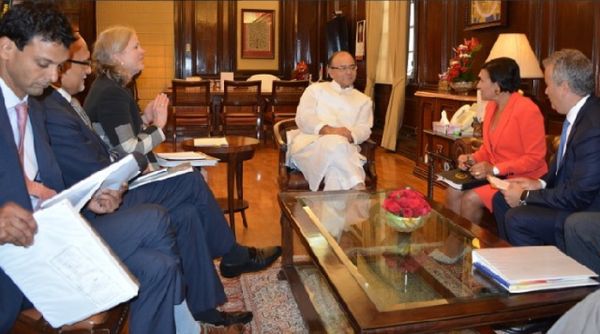
by admin | May 25, 2021 | News, Politics

Arun Jaitley
New Delhi : In light of the Rs 11,300 crore Punjab National Bank (PNB) scam allegedly involving diamantaire Nirav Modi, Union Finance Minister Arun Jaitley said on Saturday that the discourse needed to move on from ease of doing business to that of Indian industry’s responsibility to become ethical in the way it does business.
He also said political corruption at the Centre had “reduced significantly” after the ruling NDA government ended the administration’s discretionary powers in awarding contracts and allocation of resources. The sale of electoral bonds from next week, he added, would be a decisive step in cleaning up the system of political funding in the country.
Noting how India had moved into the top 100 countries in the World Bank’s Ease of Doing Business ranking, Jaitley said the measures that helped the country’s ranking had been the government’s responsibility.
“Ease of doing business was government’s responsibility. There is the need to transform from this to industry responsibility in the habit of ethical business,” the Finance Minister said at the ET Global Business Summit here.
“Indian business has to learn to do ethical business. Those who deviate from this will face the consequences not only in terms of business and civil law, but the criminal law too will be transformed to allow extreme action against such delinquents,” he said.
“Rather than always have a close look at what government’s are doing, Indian industry needs to look inwards and to a fair bit of introspecting,” Jaitley said.
In a reference to the massive accumulated non performing assets (NPAs), or bad loans, of state-run banks that have crossed the staggering level of Rs 7 lakh crore, he added that the “unethical concept that money may or may not be returned has to come to an end”.
Without naming the PNB scam, Jaitley said the recent bank frauds had glaringly highlighted the failure of both internal and independent auditors, as well as the inadequate supervision by regulators.
Indian industry, in collusion with chartered accountants, had for years been employing various ways like creating shell companies to “round trip” money, he added.
Jaitley also said that electoral bonds, which are due to start sale from March 2 will transform the total anonymity in the existing political funding system, to one where it becomes “100 per cent transparent” because such bonds can only be bought through the banking system with “clean money” and the funding would be reflected in the books of both donor companies and political parties.
—IANS
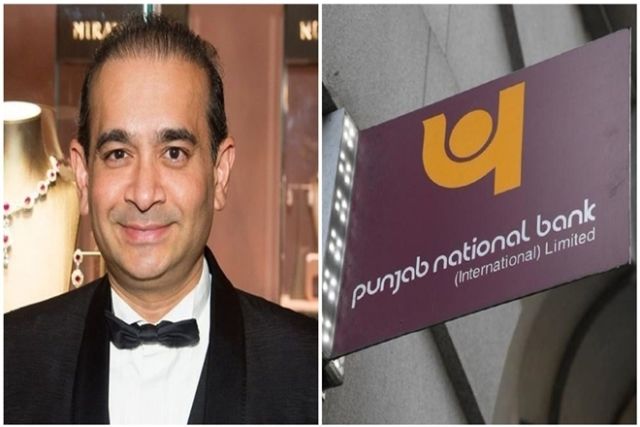
by admin | May 25, 2021 | News
 By Rajnish Singh,
By Rajnish Singh,
New Delhi : The practice of illegally issuing Letters of Understanding (LoUs) and Foreign Letter of Credits (FLCs) and then rolling them over to favour Nirav Modi and Mehul Choksi groups started in 2008 and continued till these were discovered in January this year, according to CBI officials.
The illicit activities resulting in fraud of Rs 11,300 crore occurred under the nose of top Punjab National Bank officials but they claimed to be unaware of the scam.
The revelation came to the fore during questioning by CBI officials of Rajesh Jindal, who was holding the charge of Mumbai-based PNB’s Brady House Branch Head between August 2009 and May 2011, Gokul Nath Shetty, a retired Deputy Manager from the same branch who retired in May 2017, Bechu B. Tiwari (Chief Manager, in charge of Forex Department), Yashwant Joshi (Scale II manager of Forex Department) and Prafful Sawant (Scale I officer, export).
The officials questions said they merely continued with the practice which is said to have started in 2008. It was not immediately clear who was in charge of the Forex Department when the illegal practice began.
The Central Bureau of Investigation (CBI) officials said the alleged multi-crore fraud by issuing LOUs and FLCs for sanction of loan to diamantire Nirav Modi and his uncle Mehul Choksi’s group of firms continued during Jindal’s tenure. Jindal, posted as GM Credit at PNB’s Head Office in New Delhi, was heading the second largest branch of the PNB when the practice of issuing the LoUs without sanctioned limits continued.
Jindal was arrested on Tuesday night after his day-long questioning in Mumbai. He was the 12th accused person to be arrested in the case so far. The CBI investigators had managed to get his custody till March 5 from the special CBI court on Wednesday.
Tiwari , Joshi and Sawant were also arrested on Monday for their alleged role in the scam and will remain in police custody till March 3.
All five PNB officials arrested so far were part of the forex department at the bank’s Brady House branch at the time of the fraud took place, said officials, adding these employees, in collaboration with the staff and associates of the firms headed by Nirav Modi and Choksi, commited wrongdoings for personal gains.
The first FIR in the scam registered on January 31 alleged that Shetty and a single window operator Manoj Kharat, during their forex department posting, fraudulently issued eight LoUs (which are a form of bank guarantee) equivalent to Rs 280 crore on February 9, 10 and 14, 2017, favouring the Nirav Modi companies to Allahabad Bank, Hong Kong, and Axis Bank, Hong Kong, without following prescribed procedure.
It added that the funds raised for import bills were not utilised for such purposes in many cases. Shetty and Kharat, arrested last week, are currently in CBI custody until March 3.
PNB’s employee Tiwari, in his capacity as Chief Manager, was to monitor Shetty’s transactions. However, Tiwari told the interrogators that during 2015-17, he did not monitor the fraudulent and illegal LoUs issued by Shetty.
An offcial close to the investigation said that Tiwari issued three circulars on February 19, 2016, February 7 and March 14, 2017, purportedly for the sake of keeping a check on the LoUs sent through the SWIFT code of the PNB’s Brady House Branch without any name. However, he neither followed it up nor took any steps to see why his instructions were not followed by Shetty, Joshi or Sawant.
“Tiwar’s deliberate acts of omissions led to the continuance of concealment and large scale liabilities of PNB to the foreign banks,” said the official.
The CBI filed the first FIR against Diamond R Us, Solar Exports and Stellar diamond whose partners have been named as Nirav Modi, his brother Nishal, uncle Mehul Choksi and wife Ami– who left the country earlier in early January. The second FIR was filed on February 15 for an amount of Rs 4,886.72 crore against the Gitanjali group headed by Choksi.
CBI officials said details of additional amounts (of around Rs 6,400 crore) would be added to the first FIR.
The second FIR also names 11 directors of the three Cholksi owned Gitanjali group companies– Gitanjali Gems Ltd, Gili India Ltd and Nakshatra Brands Ltd.
The PNB fraud came to light on January 16 when officials of Nirav Modi companies approached the bank for buyers’ credit without collateral saying they had been getting such facility for years. The bank said that the official who had earlier allowed such illegal facility through LoUs and FLCs had retired by then, and on checking by officials, the whole fraud unravelled.
(Rajnish Singh can be contacted at rajnish.s@ians.in)
—IANS
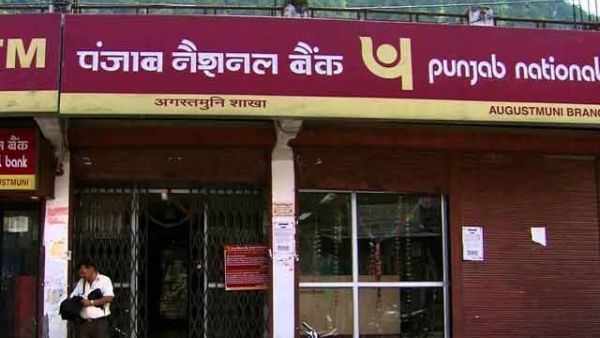
by admin | May 25, 2021 | Banking, Corporate, Corporate Buzz, News, Politics
 New Delhi : In light of the massive Rs 11,300 crore ($1.8 billion) scam allegedly involving jeweller Nirav Modi that has hit state-run Punjab National Bank (PNB), industry chamber Assocham said on Sunday that the government should surrender its majority control of banks, which should be allowed to function like private sector lenders.
New Delhi : In light of the massive Rs 11,300 crore ($1.8 billion) scam allegedly involving jeweller Nirav Modi that has hit state-run Punjab National Bank (PNB), industry chamber Assocham said on Sunday that the government should surrender its majority control of banks, which should be allowed to function like private sector lenders.
In a regulatory filing earlier this week, PNB said it had detected the gigantic fraud in one of its Mumbai branches, putting the quantum of fraudulent transactions at $1,771.69 million. The amount is equivalent to eight times the bank’s net income of about Rs 1,320 crore ($206 million).
“The PNB’s fraudulent transactions worth Rs 11,300 crore should act as a strong trigger for the government for reducing its stake to less than 50 per cent in the banks which should then be allowed to work on the lines of private sector lenders with a full sense of accountability to their shareholders protecting interest of depositors,” Assocham said in a statement here.
“The public sector banks (PSBs), ironically, are slipping from one crisis to the other and there is a limit the government can keep bailing them out at the cost of taxpayers’ money, even if it is the principal shareholder in these lenders,” it said.
The industry body said PSB senior managements spend bulk of their time “receiving and implementing directions from the bureaucrats even for innocuous issues.”
“In the process, the core banking functions, including all important risk mitigation and management, take a back seat.”
“The problem has become more grave with banks adopting new technologies which can prove both boon and bane,” it added.
In this connection, a Special CBI Court in Mumbai on Saturday remanded to police custody till March 3 three accused persons in the case.
The three includes a retired PNB Deputy Manager Gokulnath Shetty, Single Window Operator Manoj Kharat and an authorised signatory of the prime accused Nirav Modi’s group companies.
Besides these, the Central Bureau of Investigation (CBI) has named 10 other directors and officials as accused in the scam.
“Once the government equity in the banks is reduced below 50 per cent, there would be much more autonomy along with accountability and responsibility of the senior management,” Assocham said.
“The boards should then be truly taking the policy decisions while the CEOs would run the banks with full authority, coupled with the commensurate responsibility, instead of looking towards the bureaucrats for directions,” it added.
Assocham Secretary General D.S. Rawat in a statement urged the Reserve Bank of India (RBI) to take the lead to “engage with the industry in finding ways to do clean business in the entire financial sector, be it the public sector or private sector banks or even the non-banking finance companies.”
In this regard, Chief Economic Advisor (CEA) Arvind Subramaniam has also advocated more private participation in public sector banks.
Speaking at an event in Chennai on Saturday, Subramaniam said while the government was going for recapitalisation of public sector banks, the scrutiny, monitoring and disciplined deployment must be ensured only through greater private participation in banks.
According to him, there should be less public lending to private sector and the mode to achieve that is to have higher private participation in the banking sector.
He said more privatisation could be the way forward since there was no guarantee that better governance recommendations of banks, instead of privatisation, would be implemented effectively.
—IANS





